By Gerald Mbanda
Rebeca Grynspan, Secretary-General of the United Nations Conference on Trade and Development, delivers a speech via video at the opening ceremony of the eighth China International Import Expo (CIIE) and the Hongqiao International Economic Forum in Shanghai, east China, Nov. 5, 2025.
The eighth CIIE and Hongqiao International Economic Forum opened in Shanghai on Wednesday, November, 05.2025. The International Import Expo (CIIE) in Shanghai marks a milestone opportunity for African exporters to deepen their ties with the Chinese market. For many African countries, this is not just another trade fair—it’s a gateway. As China opens its doors ever wider, African agricultural, artisanal, and value-added products are increasingly finding a place on shoppers’ shelves across the world’s largest consumer market.
Since its inauguration, the CIIE has evolved into a powerful global platform. For the 8th edition, China has made clear its intention to further include African enterprises, with the number of African companies participating increasing significantly compared to last year. More strikingly, there will be a dedicated area for products from least developed countries (LDCs), many of them in Africa, making it easier for smaller-scale exporters to access China.
In international trade, many African exporters have historically faced multiple barriers such as trade finance limitations, logistical challenges, and difficulty in finding reliable Chinese buyers. The CIIE offers direct engagement with Chinese importers, e-commerce platforms, and distribution channels, helping exporters bypass traditional hurdles. For example, an Ethiopian coffee brand was able to secure agreements to enter Chinese cross-border e-commerce platforms after exhibiting at the expo.
The good news for Africa exporters is the expansion of duty-free and zero-tariff access. China has implemented a policy granting zero tariffs to over 50 African countries with diplomatic ties, covering nearly all their export products. Earlier, China had already taken steps to eliminate tariffs for least developed countries, enabling African exporters to compete on price and access. As a result, Chinese imports from African LDCs have risen sharply in recent years. Products such as Kenyan avocados, Ethiopian Arabica coffee, and Cameroonian cocoa have entered China without tariffs and with faster customs processing, giving African farmers and entrepreneurs a stronger foothold in the market.
Several African countries are reaping the benefits. In Rwanda, exporters are showcasing coffee, tea, chili, natural honey, and macadamia nuts, while negotiating new export protocols for fresh avocados to access Chinese consumers. In Benin, pineapples have drawn strong interest through agricultural pavilions at the CIIE, showing how African tropical fruit can find niche success in Asia. In Burundi, shipments of Arabica coffee beans under zero-tariff rules have resulted in long-term purchase contracts with Chinese buyers, helping to stabilize incomes for local farmers.
These stories illustrate a broader trend: Africa is no longer exporting only raw materials or low-end commodities to China. Instead, more African countries are moving into value-added goods—roasted and packaged coffee, processed honey, and branded agricultural products—while using China’s vast consumer market as a growth engine.
The CIIE also offers unmatched visibility. African products are gaining exposure to millions of Chinese importers, distributors, and retailers. Duty-free and “green channel” arrangements give them smoother access, reducing import tariffs and streamlining customs procedures. Many African countries are also showcasing a more diverse range of exports, including agricultural produce, artisanal crafts, and even services. Moreover, digital platforms are allowing African producers to sell directly to Chinese consumers through e-commerce, further strengthening trade links.
This trend aligns with broader cooperation goals between China and Africa, particularly under the Forum on China-Africa Cooperation (FOCAC). Both sides are working to boost trade, develop resilient supply chains, and promote inclusive economic growth. The CIIE provides the platform to turn these ambitions into tangible results.
However, challenges remain. African exporters must ensure that their products meet Chinese quality and safety standards, including strict rules on packaging, labeling, and traceability. There is also a need to move beyond raw commodity exports to more processed, higher-value goods to achieve sustainable growth. Moreover, the historical trade imbalance between Africa and China—where Africa exports raw materials and imports manufactured goods—must be addressed through strategic diversification and industrial development.
Even with these challenges, the momentum is undeniable. The combination of supportive trade policy, strong consumer demand, and a world-class trade platform has created a powerful engine for growth. For African businesses, the message is clear: with quality products, reliable supply chains, and active participation in platforms like the CIIE, access to China’s vast market is within reach.
As Africa and China continue to deepen their partnership, the 8th CIIE is more than just another trade show—it is a launch pad for the next phase of cooperation. Countries such as Rwanda, Kenya, Ethiopia, Benin, and Burundi are already benefiting, proving that Africa’s products can thrive in China. For Chinese consumers, this means a richer variety of authentic African goods—from specialty coffee and honey to fresh fruit and artisan crafts. For African exporters, it means new opportunities, better incomes, and a growing role in one of the world’s most dynamic markets.
The result is a story of transformation, partnership, and shared prosperity—where African products not only reach China but also win the hearts of its consumers.

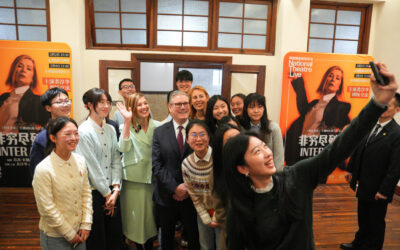
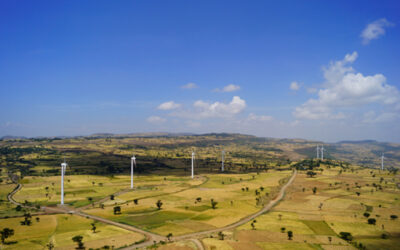
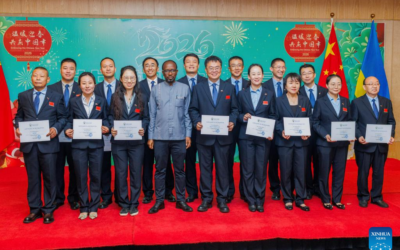

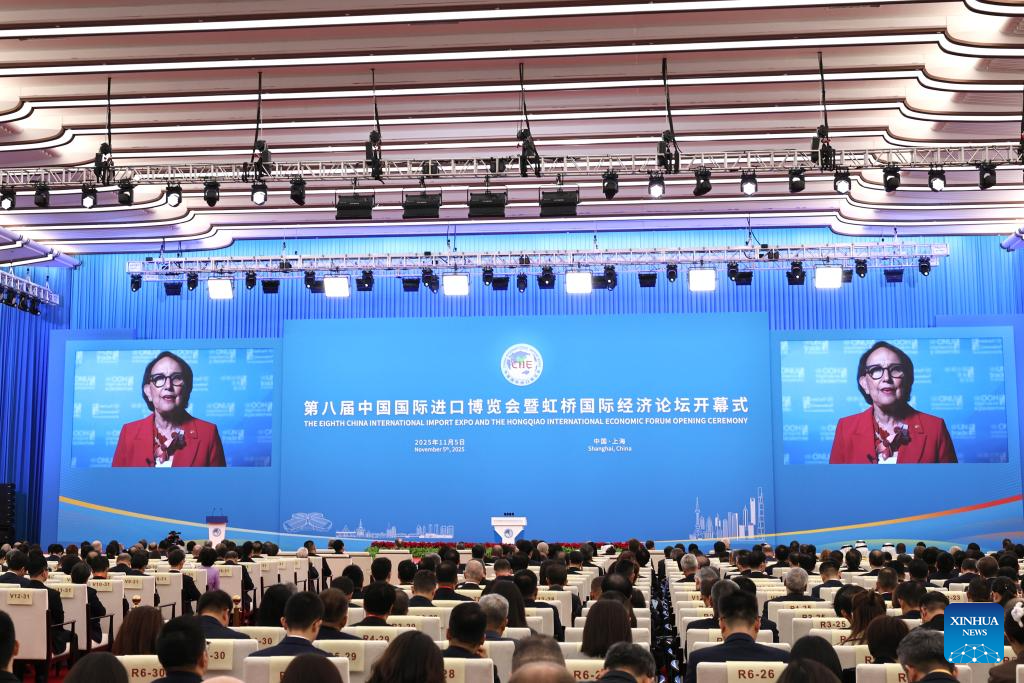

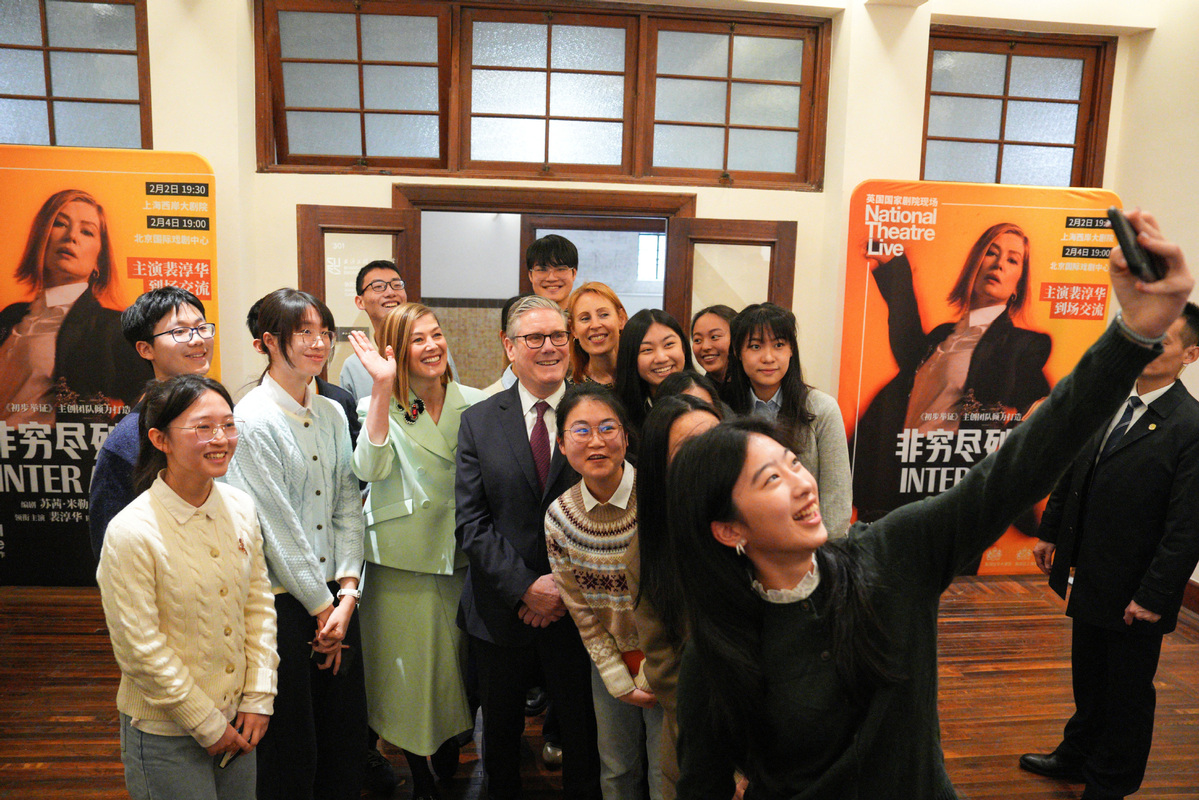
OK365m…never heard of it. Mobile friendly, I hope? Gotta be able to punt on the bus these days, right? Let me know if it’s legit! Check it out for yourself at ok365m.
Dieses casino nehmt ja Abstand von diesen Abzocker das ist nicht normal glück was für glück RTP was für
RTP -0,0000 BITTTE SPEILT DA NICHT MACHT DAS NICHT !!!!!!
“Armutszeugnis für mr green”GENIERT euch… Warte seit 27 august auf 350 euro…fordern andauernd etwas neues und halten einen hin..habe nur 10 euro
einbezahlt und mit wetten 350 gewonnen… Fancy fruits resipin, 200 Euro runtergespielt ohne
das ein einziges Mal die 5 Geldcoins gekommen sind. Grösste Abzocke dieses mr Green…eines der schlechtesten online
Casinos überhaupt!
Los geht’s mit einer 100%igen Einzahlungsprämie von bis zu 100 Euro sowie maximal 200 Freispielen. Die neuen Mitspieler erhalten zum Einstieg natürlich einen Mr Green Casino Bonus. Wer bei Mr. Green mobile spielen will, der sollte sich die entsprechende App direkt über die Webseite herunterladen.
Einmal draufgeklickt kannst du dich durch Mr Greens Reisetagebuch und andere informative Posts lesen, die zum Thema Glücksspiel passen. Im Seitenmenü findest du dich schnell von Turnieren zu den einzelnen Glücksspielbereichen bis hin zu den Angeboten und zum Kundendienst. Da Mr Green zu William Hill gehört, profitiert man hier von jahrzehntelanger Erfahrung mit Sportwetten. So kannst du zum Beispiel die Ergebnisse der nächsten Wahlen in EU, England oder den USA vorhersagen. Dass Glücksspiel-Anbieter alle Bereiche des Glücksspiels unter einem Dach vereinen ist heute gar nicht mehr so üblich. So findest du dann natürlich Koryphäen, wie Starburst, Book of Dead und Vikings go Wild (und Berzerk und to Hell).
References:
https://online-spielhallen.de/netbet-casino-bonus-code-ihr-umfassender-leitfaden/
Casino bietet mehr als 2.000 Spielautomaten, mehr als 80 Spieltische und eine Esports Arena.
Das Luxor Hotel and Casino ist ein pyramidenförmiges Hotel am Las
Vegas Strip. Ra war der �gyptische Sonnengott, der nachdem Glauben der �gypter tags�ber durch den Himmel wanderte und nachts in der Unterwelt tobte.
Der Inklinator rechts neben derRezeption f�hrt wie der gegen�berliegende in die Etagen 6-15 w�hrend die beiden anderen die Etagen bzw.
Ein Abend im Kasino und in der lebhaften Metropole Las Vegas
kann wahrlich aufregend sein, deshalb gönnen Sie sich doch
am Tag darauf Momente der Ruhe und Entspannung.
Ihr Themenhotel verfügt sogar über eine
eigene Haltestelle der Tram, also der Straßenbahn. Freuen Sie sich auf
Ecksuiten und Suiten mit 2 Schlafzimmern sowie eine Vielzahl
von anderen Unterkünften.
References:
https://online-spielhallen.de/1red-casino-promocodes-ihr-weg-zu-exklusiven-boni/
From my testing, SkyCrown Casino support is fast and reliable, though not very detailed.
For detailed issues, live chat is the better option. The FAQ section on the SkyCrown Casino website covers
basics like registration, deposits, and forgotten passwords.
Personally, I found live chat sufficient for my needs.
I tested email twice — once for information on the SkyCrown app and once regarding VIP cashback rules.
When I pushed for technical details, like RNG audits, I was referred to email support.
All balances, bets, and bonuses will reflect in your local currency.
Better yet, Skycrown supports Australian dollars (AUD)
for both deposits and withdrawals. Skycrown Casino online supports a solid range of payment
methods that cover just about every preference — whether you’re a card user, crypto fan, or
all about e-wallets. For those who prefer a dedicated app feel, you can add Skycrown to your home screen for quick access.
Mobile Casino and App sky crown online casino Whatever your vibe — pokies, live
dealers, or instant-win — it’s all here.
The app is designed in accordance with Australian regulations and provides full access to
all features for iPhone and iPad users. If you regularly play a slot with 94%
RTP instead of one with 97%, you’re donating far more to
the casino. If you encounter any issues with the login process, the app
includes a support section where you can find solutions to common login problems.
After downloading and installing the SkyCrown Casino
app from the official app store, you can log in using your existing account
details.
References:
https://blackcoin.co/bellagio-las-vegas-hotels-in-depth-guide/
If you are disabling the “Login through Net Banking Nomination” option, it will
result in loss of access to the enabled security login feature linked to your net banking login. Regarding the ‘Access Denied’ issue,
please enable the login through Net Banking option in my
bank account in your profile section. If no validated account has been selected,
the system will show ‘access denied’ message. No, only one
validated bank account can be enabled for net banking login.
There are multiple ways to login to the e-Filing portal.
The process to login when higher security options are chosen,
is also provided in this user manual. There are various
methods to login to the e-Filing portal. Thank you taxpayers for filing your ITRs in time!
All rooms and suites are non-smoking and offer the latest touch screen technology, 24-hour guest service and access to the resort pools and gymnasium.
A 12 seat dining room with adjoining butler’s
kitchen allows guests to entertain in exceptional
style complete with legendary Crown service.
Whether you are a guest at the hotel or looking for a place to enjoy a meal, Crown Perth caters for all.
Crown Perth offers a spectacular array of world-class
restaurants and fine dining experiences. Experience resort-style accommodation at one of the luxurious Crown Perth Hotels, with a world of entertainment at your doorstep.
Crown’s expansion is continuing, with a new dining district dubbed the Urban Food Precinct to open in February, and the upscale Nobu and Rockpool are about to be joined by popular
foreign names such as Side Piece Pizza, the modern sushi outlet Tekka Bar and Burgers by ES.
I ended up spending most of my time dealing with the Builder’s
Labourers’ Federation, who were causing a lot of problems during the building of the
casino and delayed the opening of the hotel.” In the lead-up to the opening, Roth and the driving force behind the casino – storied West Australian businessman Dallas Dempster, who’d forged an alliance with the Malaysian gaming operators Genting Berhad – had visited gambling operations around the world to be prepared for any problems that may arise.
References:
https://blackcoin.co/ready-to-cast-some-winning-spells/
To claim this welcome bonus, simply sign up and confirm your
email address with your new account. Sign up for N1Bet Casino today from Australia, and you can claim a 25 free spins
no deposit bonus to use on the WildCash slot from BGaming.
Sign up for Joo Casino today and claim a 20 free spins no deposit bonus on the Royal Chip slot
from Gamzix. Additionally, you can get a range of
deposit bonuses when you add funds for the first few times.
Register your new account using our exclusive link to claim this
welcome bonus. Sign up at Stupid Casino today from Australia and claim a
20 free spins, no deposit, zero wager bonus on Tower of Fortuna by Betsoft.
This does not affect which offers we list, but simply helps us monetize the website so that we can keep
providing free offers and useful content. If a casino changes or removes an offer,
we update this page immediately. We also re-test bonuses regularly to ensure they remain valid.
Sign up at Level Up Casino today from Australia, and you can claim a
35 free spins no deposit bonus on the 9 Dragon Kings slot by Platipus.
Aussie customers can access 30+ payment methods,
including cryptocurrency, instant withdrawals, a mobile-friendly interface, and
ongoing bonus offers. 7Bit Casino gives new sign-ups from Australia
a no-deposit bonus of 75 free spins on Lucky Crown Spins when using bonus code 75BIT on registration. And
that’s just your welcome gift — Merlin Casino also dishes out up to $800 in matched bonuses and 300 more free spins across
your first deposits.
References:
https://blackcoin.co/casino-sign-up-bonuses-2025-the-ultimate-guide/
When choosing a marketplace, consider factors like user-friendliness, fees,
and community support. The best NFT marketplaces for
2024 offer a diverse range of opportunities for creators,
collectors, and investors. The future of NFT marketplaces is promising, with advancements in blockchain technology, deeper integration into gaming and virtual reality, and a growing range
of innovative applications. By thoroughly examining these factors, you can make an informed decision when choosing the NFT marketplace that best suits your goals and preferences in the dynamic world of digital assets.
Some platforms actively promote featured collections or artists,
which can enhance the discoverability of your NFTs.
Designed for speed, security, and accessibility, EienVault
empowers artists and collectors to mint, trade, and auction NFTs with minimal fees and lightning-fast transactions.
Here’s your comprehensive guide to the top 10 NFT marketplaces to consider in 2025—ranked by innovation, usability, blockchain support,
and community trust. But with thousands of NFT marketplaces competing for attention, where should creators, collectors, investors,
and builders go? This uniqueness and the ability to verify ownership
on the blockchain have created a thriving market for NFTs, with collectors, investors, and
creators actively participating. These unique digital collectibles have captured the imagination of
artists, investors, and collectors alike.
OpenSea, known for its extensive support across
multiple blockchain platforms and its intuitive interface, continues to be a leading choice for a broad range of NFT transactions.
References:
https://blackcoin.co/treasure-casino-a-comprehensive-overview/
paypal casinos online that accept
References:
https://rejobbing.com/
paypal casinos online that accept
References:
https://icmimarlikdergisi.com/kariyer/companies/best-paypal-casinos-2026-uk-casino-sites-accepting-paypal/
paypal casino android
References:
ipo.fountain.agri.ruh.ac.lk
online blackjack paypal
References:
http://www.cybersecurityhouse.com
Hi! Do you use Twitter? I’d like to follow you if that would be okay. I’m absolutely enjoying your blog and look forward to new posts.
Thank you for your sharing. I am worried that I lack creative ideas. It is your article that makes me full of hope. Thank you. But, I have a question, can you help me?
Corner kick count, set piece statistics for all football matches
Can you be more specific about the content of your article? After reading it, I still have some doubts. Hope you can help me. https://accounts.binance.com/es-MX/register-person?ref=GJY4VW8W
海外华人必备的iyf官方认证平台,24小时不间断提供最新高清电影、电视剧,无广告观看体验。
I have learn several good stuff here. Certainly price bookmarking for revisiting. I wonder how so much attempt you set to create such a magnificent informative website.
Clean sheet tracker, goalkeepers and defenses with shutout statistics